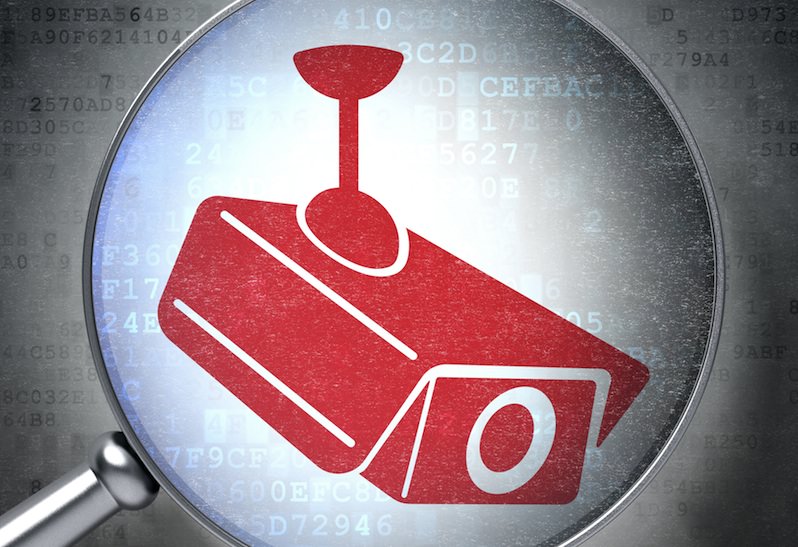President Obama Needs to Cancel Executive Order 12333
There’s a chance you’re being watched right now. Shutterstock
Shutterstock
By Thor Benson
There’s a chance you’re being watched right now.
We’re all too familiar with the bulk collection of cellphone metadata — information on whom you contact and when — that Edward Snowden revealed. However, Executive Order 12333 from 1981 (thanks, President Reagan) allows the NSA to collect the actual content from phone calls and Internet communications if they are amassed from outside U.S. borders. John Napier Tye, former section chief for Internet freedom in the State Department’s Bureau of Democracy, Human Rights, and Labor, recently wrote about this issue in The Washington Post.
The problem with this executive order is that it allows for a wide range of ways the NSA can gather the content of communications from American citizens, as long as the “point of collection” is abroad. I spoke with Sharon Goldberg, an assistant professor in the Computer Science Department at Boston University who recently wrote about Executive Order 12333, and she pointed out that Internet traffic often leaves U.S. borders while you’re still in the United States. Many websites store data abroad, and “traffic on the Internet will take the cheapest path,” she said. That means that even if you’re using your computer in New York City, the data being transmitted could be collected in Brazil and used by the NSA under Executive Order 12333.
“We should have the same legal framework [for communication inside and outside the U.S.], regardless of the point of collection, because the flow of traffic on the Internet is not bound to geographic borders,” Goldberg said. Not only that, but she said there are some methods that outsiders, without control of your router, can use to manipulate your Internet traffic to force it to exit U.S. borders. There is no language in the executive order that seems to prevent this. Thus, NSA staffers can wait for your traffic to go elsewhere — or they could conceivably make it happen themselves.
Besides Internet traffic from inside the U.S., any calls you make while visiting another country could be recorded and stored. Phone network connections for making calls are unlikely to be routed outside the country, but that doesn’t mean you won’t leave the country some day and make a call. Unlike Section 215 of the Patriot Act, the law that allows metadata collection, Executive Order 12333 requires no oversight from other government branches. So the NSA can record any call you make on your trip to Canada as long as it thinks you are a threat of some kind. It does have to get a court order to “individually target” someone, Tye points out in his article, but there are ways of getting around that requirement. As Tye notes:
If the contents of a U.S. person’s communications are ‘incidentally’ collected (an NSA term of art) in the course of a lawful overseas foreign intelligence investigation, then Section 2.3(c) of the executive order explicitly authorizes their retention. It does not require that the affected U.S. persons be suspected of wrongdoing and places no limits on the volume of communications by U.S. persons that may be collected and retained.
The loopholes in Executive Order 12333 are large enough to sail a ship through. President Obama has the power to make and overturn executive orders unilaterally. He does not need to consult Congress, the NSA or any other government body to end this practice. Obama has proposed several reforms to NSA practices, but he has not mentioned altering or canceling this executive order. He could end it today, and he should.
Tracking and recording communications made by American citizens is not only a violation of the Fourth Amendment, which protects against unreasonable search and seizure, but it also violates the First Amendment. If Americans cannot make a phone call abroad or use the Internet anywhere without considering their need to self-censor in case they’re being watched, so much for freedom of speech. These are basic guiding principles of our country, and if Obama will not overturn this executive order, then it is time for the Supreme Court to actually do its job and defend the Constitution (instead of spending time defending corporations).
Tye wrote in his Washington Post article that he filed a complaint with the House and Senate intelligence committees and the inspector general of the NSA and nothing was changed. If our president really wants to show us what the “most transparent administration in history” looks like, then he needs to put spying on Americans behind closed doors, and under confounding pretenses, behind us.
Thor Benson is a traveling writer who currently lives in Los Angeles. He has written for Slate, Vice, Fast Company and many others. Follow him at @thor_benson.
Your support matters…Independent journalism is under threat and overshadowed by heavily funded mainstream media.
You can help level the playing field. Become a member.
Your tax-deductible contribution keeps us digging beneath the headlines to give you thought-provoking, investigative reporting and analysis that unearths what's really happening- without compromise.
Give today to support our courageous, independent journalists.






You need to be a supporter to comment.
There are currently no responses to this article.
Be the first to respond.